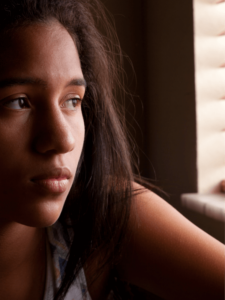Obsessive Compulsive Disorder (OCD) Treatment Center for Teens and Adolescents in Dallas, Texas
Living with obsessive compulsive disorder (OCD) can be difficult, exhausting, and demanding. However, OCD does not have to limit your teenager’s potential. Many go on to lead successful lives after receiving the proper help and treatment. Call BasePoint Academy today to schedule a Free Confidential OCD Assessment for your teen.
Obsessive Compulsive Disorder (OCD) for Teens at BasePoint Academy
BasePoint Academy, located in the heart of Texas, offers luxury treatment facilities designed specifically for teenage boys and girls. With centers spread across the Dallas metroplex in Arlington, Forney, and McKinney, we extend our reach to serve as many teens in need as possible. Our Obsessive Compulsive Disorder (OCD) treatment programs in Texas is available at all these locations, providing comprehensive mental health care while allowing teens to continue with their daily routines.
At BasePoint, we understand the importance of early intervention in mental health issues. That’s why we offer free OCD assessments for teens. We also accept insurance for our mental health treatment programs to ensure that quality care is accessible to all. Understanding that every family’s financial situation is unique, we offer various payment options tailored to suit different needs.
What is Dallas, Texas Known for?
Dallas, Texas, is well known for world-class museums, thriving art, and several professional sports teams, including the beloved Dallas Cowboys, NBA Dallas Mavericks, NHL Dallas Stars, and Major League Baseball team, the Texas Rangers. The city has a long and important history, probably most well-known for the assassination of President John F. Kennedy on November 22, 1963.
The city is home to one of the largest art districts of any city and boasts one of the country’s best park systems. Texas is also known for barbecue, and the people of Dallas are always looking for a reason to have a barbecue-focused weekend activity. The city is also home to Tex-Mex food and the frozen margarita machine.
Major Cities Near Dallas, TX
Dallas, Texas, is not the only large city along the northeastern border of Texas, each of which has its own unique flavor. Arlington is just 20 miles west of Dallas. It’s home to the University of Texas at Arlington and over 4,600 acres of parkland. Forney was named by the Texas legislature as “The Antique Capital of Texas”
McKinney is in the northeast corner of the Dallas-Fort Worth metroplex and offers residents a picturesque, small town feel and friendly open green spaces. Irving is just Northwest of Dallas and hosts changing art exhibits, outdoor installations and concerts. Located just north of Dallas, Plano is home to several museums, including the Heritage Farmstead Museum and the Interurban Railway Museum and Southfork Ranch, which was made famous by the TV series “Dallas.”
What is OCD?
Obsessive compulsive disorder (OCD) is a mental health condition in which the individual displays a pattern of unwanted thoughts or fears, that are called obsessions. The obsessions cause the individual to repeat behaviors, which are called compulsions. These intrusive thoughts and repetitive behaviors make it difficult for your teenager to work through their daily activities.
Acting on the repetitive behaviors helps reduce stress levels but feeds into the acts becoming rituals. In many instances, OCD centers on a specific theme or fear. For example, a fear of germs which causes an individual to wash their hands repetitively, wear gloves or a mask, and avoid touching other people or objects. People with OCD may be embarrassed or frustrated, but it is important to note that effective treatment is available.


What is an OCD Treatment Center for Teenagers?
An OCD treatment center for teenagers is focused on the mental health treatment of obsessions and compulsive behaviors that trigger other anxiety disorders, depression, and other mental health issues. An OCD treatment center will identify specific behaviors based on adolescent development and provide teen mental health resources alongside youth counseling and teenage support groups.
Parenting teenagers with OCD can increase family stress, so BasePoint Academy offers family therapy to help establish healthy family boundaries. A teen OCD treatment center will have board-certified mental health professionals and licensed counselors with experience in treating OCD using evidence-based and holistic approaches that help your teenager develop coping strategies for a lifetime of success.
OCD Treatment Admissions and Intake
Our complimentary assessment with a licensed clinician will provide you with a recommendation for the appropriate level of care for your teen struggling with mental health. We can also check your insurance coverage levels.
Call us today to schedule a complimentary same-day assessment at (972) 357-1749 or complete our inquiry form.
Obsessive compulsive disorder (OCD) Admissions form
Contact BasePoint Academy Today
Contact us today to schedule a free confidential assessment for your teen with a licensed clinician.
You can also get in touch to talk with our mental health experts about treatment needs, care options and your insurance coverage levels.
Call: (972) 357-1749Check Your InsuranceStatistics on Obsessive Compulsive Disorder in Texas
Obsessive-compulsive disorder (OCD) affects children and adolescents at a rate of 1% to 3%. It often emerges during adolescence but is frequently overlooked and insufficiently treated, despite the importance of early intervention. Genetics play a significant role, contributing 45 to 65% to the disorder’s variability.
Additionally, about 70% of OCD patients have comorbid mental health issues, and over 40% experience a chronic course of the illness. Treatment typically begins with Cognitive Behavioral Therapy (CBT), followed by a combination of therapy and medication, specifically selective serotonin reuptake inhibitors (SSRIs), which may later transition to SSRIs alone.
Different Types of Obsessive Compulsive Disorder (OCD)
Obsessions or patterns of unwanted thoughts lead to specific actions and those actions are part of the diagnosis for different types of obsessive compulsive disorder. The following are examples of different types of OCD, but this is not a full list.
Academic OCD
Academic OCD is sometimes characterized as perfectionism. In most cases, perfectionism is a dysfunction in which the individual has demanding standards on themselves and relentlessly pursues those standards despite their actions causing problems. Academic OCD is also called dysfunctional academic perfectionism and data suggest the incidence is rising.
Social OCD
Social OCD is characterized by a fear of social rejection accompanied by actions taken to avoid preventing that rejection or reducing anxiety. There is a key distinction between social anxiety disorder and social OCD. People with social OCD cannot logically change their thought patterns, while those with social anxiety can logically use strategies to restructure their thought processes.
Pure Obsessional OCD (Pure O)
This subtype of obsessive compulsive disorder is also referred to as “Pure O” as it’s slightly different from other types of OCD. The difference is that the compulsions take place primarily in your teens’ thought processes rather than through physical visible actions. For example, your teenager may replay events over and over again or silently repeat phrases.
Existential OCD
Individuals with existential OCD have intrusive thoughts that are focused on questions with impossible answers. These thoughts are typically philosophical, such as “Is there life after death?” or “What is my purpose?” The thoughts become all consuming and your young adult may spend hours mulling it over. The weight of these questions can trigger high levels of stress, anxiety, and depression.
Self-Harm OCD
Your teenager’s obsessive thoughts can be focused on experiencing or causing themselves self-harm. People with this subtype of OCD find it difficult to share their thoughts and feelings with mental health professionals. Self-harm compulsions can take the form of cutting or self-injury. As the number of open wounds increases, so does the risk of infection.
Scrupulosity OCD
This subtype of OCD involves obsessions with morality or religion. Your teenager may be obsessed over something they’ve done or what they believe is a violation of religious or moral code. This is very different from being devout or highly religious when behavior is not excessive. Teens with scrupulosity act differently than others in their faith community.
Causes of Obsessive Compulsive Disorder (OCD) in Teenagers
Mental health professionals have identified several causes of obsessive compulsive disorder in teenagers. Your teen may not experience just one of these causes and this list is only an example and not a full list of potential reasons your adolescent has symptoms of OCD.
Brain Structure and Function
Some people with obsessive compulsive disorder demonstrate changes in the structure and function of the front of the brain.
Both children and adults with OCD exhibit a reduced thickness in the bilateral inferior parietal cortex, a region situated near the temples, accountable for various cognitive functions such as interpreting sensations or experiences.
Serotonin Imbalance
Serotonin deficiency has been linked with anxiety disorders like OCD. Serotonin is a neurotransmitter that sends chemical messages between the brain and your body. Serotonin helps regulate mood, sleep, bone health, and digestion to name a few. Medications called selective serotonin reuptake inhibitors (SSRIs) can help treat OCD by helping create a better balance of serotonin in the brain.
Environmental Factors
There are several genetic factors that impact the development of OCD, most of which are dependent on environmental triggers. While early, adverse life experiences, such as child abuse, emotional abuse, or sexual assault, can increase the risk of development and symptoms severity, not all people exposed to trauma develop OCD symptoms.
Prenatal and Perinatal Factors
Teenagers who have had adverse prenatal and perinatal experiences also have an increased risk of developing symptoms of OCD. Prenatal experiences include maternal smoking during pregnancy or other stressors such as medication. Perinatal experiences, or those that occur just after birth, could include preterm birth and low birth weight.
Childhood Illness or Infection
Challenges to the immune system may impact brain development in early childhood that result in the development of symptoms of OCD. Childhood infections can change brain structure and function and impact mood regulation that could lead to compulsive behavior. Pediatric Autoimmune Neuropsychiatric Disorders Associated with Streptococcal Infections (PANDAS) can trigger or worsen OCD symptoms after a streptococcal infection.
Personality Factors
Personality traits have been identified as potential contributors. Specifically, a high degree of neuroticism or low extraversion, which means that your teen is less interested in stimuli from the environment and more focused on their internal thoughts and feelings. Neuroticism is a tendency to focus on negative emotions, so your teen may be less able to regulate their emotional state.

DON’T IGNORE THE SYMPTOMS
Signs and Symptoms of OCD in Teens
Many of the signs and symptoms of OCD in teens are similar to those found in adults. To learn how to help a teen with OCD, parents must learn how to identify symptoms that may indicate their teen has the mental health condition. At one time or another, most people experience unwanted thoughts.
However, these do not cause distress since they aren’t interpreted as meaningful. Teens with OCD experience a clinically adverse impact on life through unwanted thoughts and altered eating and sleeping patterns that trigger repetitive behaviors.. Some of the more common unwanted thoughts in teens are fears they’ll get sick or die, a concern for a loved one, a fear they have broken a rule, fear of germs, and a concern that everything is done in a specific and orderly fashion to reduce the potential of a bad outcome.
While it is impossible to identify thought patterns in your teenager, some of these obsessive thoughts can result in compulsions that include:
- Cleaning rituals such as washing hands consistently throughout the day or cleaning things in a certain way
- Repeating rituals such as erasing and rewriting or redoing an answer or a paper multiple times
- Repeating words or phrases more often than is necessary or in a specific number of times in an exact order
- Checking the doors and windows in the house multiple times before leaving
- Inspecting every light switch to be sure it’s turned off before leaving
- Checking each homework assignment or paper to be sure it’s done properly
- Chewing food in a specific manner each time they eat
- Having a place for everything in their room
- Counting the items or objects they own to avoid an unlucky number
- Preoccupation with bodily waste
- Sexual or aggressive thoughts and actions
- Grooming rituals
- Rituals that must be performed to remove contamination from a person or an object
- Hoarding and collecting things
BasePoint Academy Accepts health Insurance
We accept most major health insurance providers in Texas and can check your treatment coverage levels on your behalf
TEENAGE OCD TREATMENT CENTERS NEAR DALLAS, TEXAS
Base Point Academy has several OCD treatment facilities in the Dallas-Fort Worth area, including in Arlington, Forney, and McKinney, Texas. Each of these luxury facilities offers the same level of care from licensed mental health professionals whose focus is providing teenagers with the tools and resources they need to heal and support sustainable recovery from OCD and other mental health conditions.
- Arlington, Texas: 3900 Arlington Highlands Blvd, Suite 237, Arlington, TX 76018
- Forney, Texas: 713 W Broad St, Suite 200, Forney, TX 75126
- Frisco, Texas: 8275 Judges Way, Suite 100I, Frisco, TX 75036
- McKinney, Texas: 4733 Medical Center Drive, McKinney, TX 75069


How to Find Obsessive Compulsive Disorder Treatment Centers for Adolescents
Obsessive-Compulsive Disorder (OCD) is a condition that can significantly impact a teenager’s life. However, with the right support and treatment, adolescents can learn to manage their symptoms effectively. If you’re looking for a teen obsessive compulsive disorder therapy in Dallas, Texas, there are several options available to you.
BasePoint Academy has three treatment centers that offer a variety of therapy types, including IOP and PHP. These programs are designed to provide adolescents with the comprehensive support they need to overcome OCD. When choosing in-person or online an OCD treatment center in Dallas, Texas, it’s essential to consider your teen’s unique needs and circumstances. Some families may prefer a residential treatment setting, where teens live on-site and receive round-the-clock care. There are even luxury OCD residential treatment centers that offer high-end amenities alongside their therapeutic services.
The goal of any OCD treatment for teens should be to help them manage their symptoms effectively and live a fulfilling, productive life. With the right support, adolescents with OCD can learn to cope with their condition and thrive.
Types of Treatment Programs for Teen Obsessive Compulsive Disorder
OCD treatment for teens can occur in inpatient or residential care facilities or in a highly structured outpatient treatment center that offers your teenager treatment in the least restrictive environment possible. This allows your teen to learn strategies throughout the day and go home and practice them at night. BasePoint Academy offers OCD teen outpatient treatment programs that help reduce symptoms and address teenage challenges.
Partial Hospitalization Program for Teen OCD
Partial hospitalization programs offer your teenager a comprehensive level of care provided five days each week, Monday through Friday. During treatment in a PHP for OCD, your teen may engage in individual, group, and family therapies that utilize a number of different interventional strategies, including medication management to address brain chemistry and serotonin deficiency.
Intensive Outpatient Program for Teen OCD
BasePoint Academy offers an intensive outpatient program for OCD treatment for teens. Teenagers who require more than once-a-week therapy, but do not need five days a week, may find an intensive outpatient program for OCD meets their needs and helps them develop strategies to manage everyday life, including reducing obsessions and rituals that are common with OCD.
Crisis Stabilization Services for Teen OCD
External environmental stressors can trigger a crisis in teens with OCD, such as moving to a new city, bullying, or starting a new school. Crisis stabilization is essential to meet the immediate need and avert danger to the teen and others.
The crisis stabilization program at BasePoint Academy seeks to provide that intervention in the least restrictive environment possible. However, in some cases, your teenager may require inpatient hospitalization or residential care to deescalate the severity until they are no longer an active danger to themselves or others.
Types of Therapy and Counseling for OCD in Teens
OCD treatment for teens can occur in inpatient or residential care facilities or in a highly structured outpatient treatment center that offers your teenager treatment in the least restrictive environment possible. This allows your teen to learn strategies throughout the day and go home and practice them at night. BasePoint Academy offers OCD teen outpatient treatment programs that help reduce symptoms and address teenage challenges.
Cognitive-Behavioral Therapy (CBT)
Cognitive behavioral therapy is a form of short-term talk therapy that helps identify links between what your teen thinks and their actions. This is an evidence-based, holistic approach that has been scientifically proven to help teenagers with OCD. By focusing on a chain of events, your teenager’s therapist can help your teen identify patterns before they lead to self-destructive behaviors.
Dialectical Behavior Therapy (DBT)
Dialectical behavioral therapy is another form of talk therapy that is somewhat similar to cognitive behavioral therapy. Under the guidance of an experienced and licensed counselor and in a safe and structured environment, your teenager can become empowered to regulate their emotions and develop skills that help them manage compulsive behaviors that are linked to OCD.
Family-Focused Therapy
The board-certified mental health professionals at BasePoint Academy believe that families and teenagers deserve a place in which to express their struggles with grief, disruptive behavior, relationship problems, and self-esteem issues that are linked to OCD. During family counseling, everyone has the chance to discuss their progress, goals, and obstacles that occur at home.
Acceptance and Commitment Therapy (ACT)
This is an action-oriented approach that stems from cognitive behavioral therapy during which your teenager learns to identify obsessive thoughts and avoid denying the inner emotions that are responsible for compulsive behavior. The therapy is aimed at accepting the hardships in their life and committing to making necessary changes.
Mindfulness-Based Cognitive Therapy (MBCT)
Mindfulness-based cognitive therapy is a modified form of cognitive behavioral therapy that incorporates mindfulness practices to help address negative thought patterns that can contribute to obsessive compulsive disorder. This type of therapy helps a person identify and fight a frame of mind before it becomes ingrained.
Psychodynamic Therapy
BasePoint Academy offers teenagers psychodynamic therapy that is an evidence-based approach to increase their self-awareness and reduce the symptoms of obsessive compulsive disorder. Psychodynamic therapy is a form of psychoanalysis that evaluates relationship patterns between conscious and unconscious thoughts and how they affect an individual’s behavior. The goal is to improve your teenagers’ self-awareness and reduce their emotional suffering.
Family, Group and Individual Therapy
Each teenager typically receives individual therapy with a counselor, during which they have the opportunity to discuss difficult thoughts and thought patterns in a safe and structured environment. Most teenagers also engage in group therapy, where their peers offer a form of support they cannot receive from adults. Finally, family therapy helps teenagers and families address the stressors that happen at home with an individual who has OCD.
Does Insurance Cover OCD Treatment for Teens?
Health insurance covers OCD treatment for teens who are beneficiaries on your health insurance plan. The rehab care insurance part of your health insurance policy is mandated by the 2010 Affordable Care act. This act ensures that all health insurance policies written after 2010 include coverage for essential health services, including mental health and substance use disorder treatment.
However, not all health insurance policies are the same. Your policy may have limits on the number of sessions your teenager can receive per incident, per year, or over a lifetime. You can quickly and easily check your insurance coverage by calling BasePoint Academy at (972) 357-1749. The admission specialists will verify your insurance coverage and determine if prior authorization is required before your teenager can begin receiving treatment.
Which Health Insurance Providers Cover OCD Treatment for Teenagers?
Some of the major health insurance providers in Texas include UnitedHealthcare, Blue Cross Blue Shield, Aetna, Cigna, Optum, Magellan, Carelon Behavioral Insurance. Each insurance company develops benefits and limitation options included in the different plans.
Your employer may offer group plans to employees to cover mental health treatment. Since the introduction of the Affordable Care Act in 2010, health insurance polcies are mandated to offer coverage for mental health conditions and substance use disorders. Contact us online for more information about your insurance coverage.
Contact BasePoint Academy Today
Contact us today to schedule a free confidential assessment for your teen with a licensed clinician.
You can also get in touch to talk with our mental health experts about treatment needs, care options and your insurance coverage levels.
Call: (972) 357-1749Check Your Insurance
What is the Adolescent OCD Treatment Program Admissions Process?
The admission process at any mental health facility is designed to ensure that your teenager receives the best possible care customized to meet their unique needs. While the admission process is different between programs and facilities, you can typically expect the following:
- Initial Contact: During your initial phone call to BasePoint Academy, our admission specialist will check your insurance coverage and determine if prior authorization is required. You can also request a free assessment, which helps determine if BasePoint Academy has the necessary therapeutic interventions needed to address your teenagers mental health concerns.
- Assessment and Evaluation: If you and your teenager decide that BasePoint Academy is an option for treatment, our board-certified mental health professionals will perform a more thorough medical assessment and psychiatric evaluation on which your teenagers customized treatment plan is developed.
- Admissions Coordination: Before admission, our admission specialist will estimate your out-of-pocket costs for health insurance coverage, share with you and your teenager what can and cannot be brought to the treatment center, and schedule an orientation tour.
- Orientation and Program Introduction: You and your teenager can receive an orientation and program introduction to BasePoint Academy’s outpatient environment. You will see the facilities, be introduced to the staff, and understand the customized program plan for your teen.
- Active Participation and Progress Monitoring: After admission, it is expected that your teenager will actively participate in treatment and that the staff will monitor their progress and make adjustments to the treatment plan as necessary.
Free OCD Assessment for Teen Boys and Girls
Symptoms of OCD in teens are challenging to the teenager and their family. Intrusive thoughts, compulsive behaviors, and teenage stress do not always look like OCD. The teen years are normally a tumultuous time, and it takes an experienced licensed counselor to assess your adolescent’s behaviors to determine if they are experiencing OCD.
While there are several simplistic online questionnaires that claim to identify OCD, it is best done by a board-certified mental health professional who has experience in adolescent psychology. When you call BasePoint Academy, you can get a free assessment for your teenager that can help you make an informed decision about care.


How Much Does Obsessive Compulsive Disorder Treatment for Teens Cost in Dallas, Texas?
Treatment costs for adolescent OCD in Dallas, Texas, will vary across programs and hinge on factors such as insurance coverage and the treatments employed. Partial hospitalization programs will cost more than intensive outpatient treatment, while a residential treatment program will likely incur the highest expenses. Again, however, treatment costs will significantly vary.
When you call BasePoint Academy’s admission specialist at (972) 357-1749, we can check your insurance coverage and estimate your out-of-pocket costs, including copayments, deductibles, coinsurance, and more.
Teen Treatment Programs and Therapies
Adolescent Mental Health Disorders We Treat
Statistics on OCD in Teen Boys and Girls in Texas
- OCD can start anytime from preschool through adulthood, but more frequently appears between ages eight and 12 and in late teens through early adulthood.
- The International OCD Foundation estimates roughly 1 in every 200 children and teens have OCD; which means four or five children with OCD are in any average sized elementary school and in a medium to large high school there could be up to 20 students with OCD.
- OCD is frequently unrecognized, underdiagnosed and undertreated in children.
- Women with OCD tend to report symptoms starting during or after puberty and report significantly higher rates of depression and anxiety than males. Gender may play a role in the onset and presentation of OCD symptoms.
- According to the National Institute on Mental Health, the prevalence of OCD was higher (1.8%) in 2023 than in males (0.5%). Young adults 18 to 29 years had the highest rate of diagnosis compared to people aged 30 to 60+.
- In adults, there were 50.6% with serious symptoms of OCD, 34.8% with moderate symptoms, and 14.6% with mild symptoms.
- One type of cognitive behavioral therapy – exposure and response prevention – has shown a success rate of 50% to 60% with significant improvement consistent 2 years later.
Schedule OCD Treatment For Your Teen Today
If your teen has been exhibiting mental health issues, substance abuse, or other behavioral health concerns, it’s time to explore effective and focused treatment options. The team of clinicians, counselors, and therapists at BasePoint Academy provide an integrative approach to teen treatment that supports lifelong success. Call today to schedule a complimentary assessment.
Contact BasePoint Academy Today
Contact us today to schedule a free confidential assessment for your teen with a licensed clinician.
You can also get in touch to talk with our mental health experts about treatment needs, care options and your insurance coverage levels.
Call: (972) 357-1749Check Your Insurance








